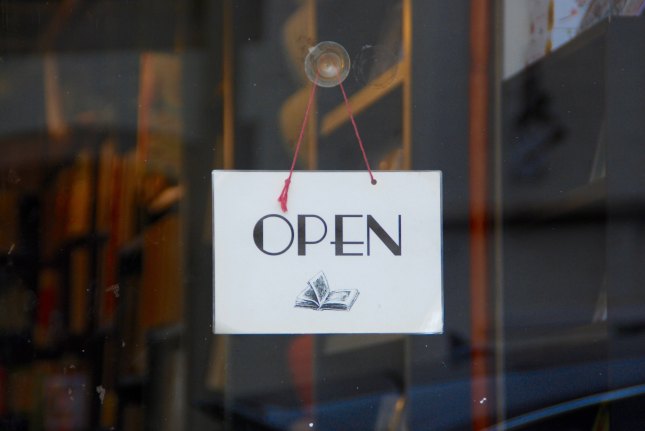This is the sixth and final in a series of posts about each of the teams that will be attending SCI 2018, and their projects. This one was submitted by Marcel LaFlamme.
Scholarly societies have a vested interest in making the knowledge that their members produce accessible to a broad range of publics. Yet many societies depend on subscription revenue from the publications they sponsor, along with membership dues and conference fees, to support organizational activities. In recent years, rank-and-file scholars have begun to champion open-access publication models, in concert with librarians whose budgets have been stretched thin by unsustainable increases in journal pricing. But societies have been more reluctant to embrace open access, viewing it as a risky departure from a working business model in the midst of uncertainty on other fronts.
Our team aims to take an inventory of those perceived risks with respect to two peer societies, the American Anthropological Association (AAA) and the Canadian Anthropology Society/Société Canadienne d’Anthropologie (CASCA), and to explore possible strategies for mitigating them. Since 2008, the AAA has contracted with the commercial publisher Wiley to publish its portfolio of twenty-two journals on a subscription basis, while experimenting with open access on a limited scale. The University of Toronto Press has published CASCA’s flagship journal, Anthropologica, on a subscription basis since 2013. But the shifting landscape of scholarly publishing—and, in CASCA’s case, new funding priorities at Canada’s Social Sciences and Humanities Research Council—has compelled society leadership to consider open futures.
In 2015, the open-access publishing cooperative Libraria was formed out of a desire to develop alternatives to the existing ecology of scholarly communication. Over the past three years, Libraria has worked to develop a financial and organizational model for flipping journals in anthropology, archaeology, and adjacent fields to open access without relying on article processing charges (APCs). Under this model, libraries would redirect subscription payments for participating journals to a transparently governed cooperative comprised of societies and other key stakeholders, which would publish the journals on a not-for-profit, open-access basis. Both the AAA and CASCA have expressed interest in this model, but thus far neither society has committed itself to taking part.
Over the course of the 2018 Triangle Scholarly Communication Institute, our team aims to address the following questions:
- What financial, operational, and cultural risks would moving toward open access pose for scholarly societies like the AAA and CASCA? How can open-access advocates more fully apprehend these risks?
- Are there risks for societies like the AAA and CASCA in not moving toward open access? In other words, are the existing publishing models for these two societies likely to remain viable into the future? In the context of broader shifts toward open data and open infrastructure, how might decisions made today about access to content result in path dependencies in other areas?
- What other actors have a stake in mitigating the risks of open access for scholarly societies? How might they be enlisted in doing so? What forms of support would be useful, and how could they be structured such that societies could rely on them?
- Does the Libraria model, as it is currently formulated, mitigate the risks of open access for the AAA and CASCA? If not, then how could the model be refined or further specified? What other social and technical infrastructures might be required?
- How do the answers to these questions map onto the actually existing governance structures of these societies? What role would sections, committees, boards, and society staff need to play in moving toward open access?
Our team sees the Institute as a rare opportunity for open-access advocates and society leadership to spend time together in an unhurried, low-pressure setting, building trust and working through differences. We also see the inclusion of a representative from a leading research library as essential to understanding how libraries see their own role in the scholarly communication landscape changing. By structuring our team in this way, we hope to elaborate a process for discovery and deliberation that can help other societies and the communities they serve to push past a shared sense of impasse.
Team Members
Anna Agbe-Davies is Associate Professor in the Department of Anthropology at the University of North Carolina at Chapel Hill. She chairs the Anthropological Communication Committee of the American Anthropological Association and serves on the association’s Executive Board.
Alberto Corsín Jiménez is Reader in Social Anthropology at the Spanish National Research Council and a member of the Executive Committee (as well as co-founder) of Libraria. He researches and writes on free culture and open-source activism, with a focus on architecture and participatory urbanism.
Ellen Dubinsky is the incoming Scholarly Communication Librarian at the University of Arizona Libraries. For over a decade, she has been involved in promoting open-access publishing, managing institutional repositories, and facilitating the publication of titles including the Journal of International Women’s Studies, Journal of Cape Verdean Studies, and International Journal of Cybersecurity Intelligence and Cybercrime.
Marcel LaFlamme is Visiting Scholar in the Department of Anthropology at the University of Washington and Managing Editor of Cultural Anthropology, the only journal currently published on an open-access basis by the American Anthropological Association. He is a member of the Executive Committee of Libraria, and previously served as a community college library director.
Caura Wood is an energy anthropologist working in Calgary, Alberta. She is a former treasurer of the Canadian Anthropology Society/Société Canadienne d’Anthropologie and now co-chairs the society’s Open Access Working Group.
Next Steps
Our team envisions sharing the results of our participation in the Institute both within the discipline of anthropology and beyond. We will present detailed reports on our work to the executive boards of the two societies and identify point persons to coordinate next steps. This may include a working session at the joint annual meeting of the two societies, which is scheduled for November 2019. We will also report out to key members and staff at the Association of Research Libraries, which is considering what role it can play in catalyzing an open-access transition in targeted disciplines.
In a more public-facing vein, we will develop a freely available toolkit on understanding and mitigating the risks of open access for scholarly societies, drawing on our experiences leading up to and at the Institute. Not every society can send a team to Triangle SCI, so we want to distill the process that we develop and some of our lessons learned into a portable format that can be used to guide discussions in other settings. We plan to promote the toolkit with blog posts in publications such as The Scholarly Kitchen or Associations Now.
[ Photos by Chris Barbalis, Yeshi Kangrang, and Leyre Labarga used under Unsplash free license. ]




Pingback: SCI 2018 project teams | trianglesci.org
Pingback: Overcoming risk at SCI 2018 | trianglesci.org